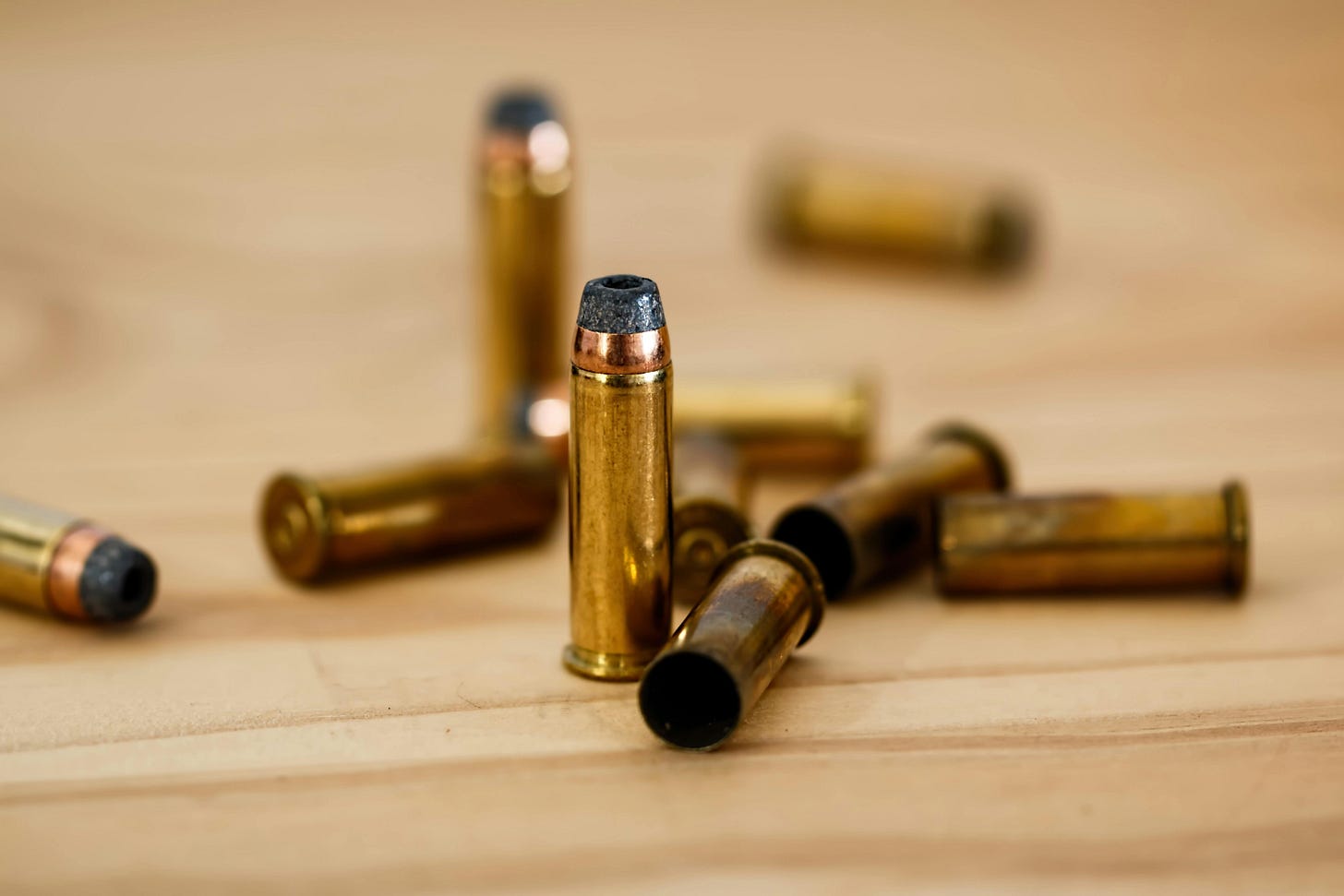Some gun owners are more equal than others
Trump's DOJ wants to band transgender gun ownership.
CNN:
In the wake of the Minneapolis Catholic church shooting, senior Justice Department officials are weighing proposals to limit transgender people’s right to possess firearms, according to two officials familiar with the internal discussions.
The talks, described as preliminary in nature, appear to build on an idea that has gained some currency in conservative media since the Minneapolis shooting that killed two children and injured 21, most of them children, at Annunciation Catholic Church, an attack that police say was carried out by a 23-year-old transgender woman.
This is interesting to me for three reasons:
It’s an implicit admission that gun restrictions are good for public safety
We’ve been hearing for decades that “guns don’t kill people, people kill people” as an argument against gun restrictions in the wake of America’s many, many mass shootings. And maybe you could argue that this act amends that saying “guns don’t kill people, transgender people kill people.”
But it sure seems that when you start speaking of outlawing guns for a certain class of people because guns are too dangerous to let just anybody have them, well, that accepts the notion that guns are at least part of the problem, right?
Which means…
The GOP doesn’t care about gun rights for other people
Of course, that means the Party of Gun Rights is no longer talking about “inalienable 2nd Amendment rights” but rather where to draw the line as to who gets those rights and who doesn’t.
In: Straight white guys.
Out: We’ll let you know. But we’ll start with sexual minorities.
Here’s who gun advocates have fought to keep gun-eligible in recent years:
* Veterans who can’t even manage their own financial affairs.
* Mel Gibson.
* Gun dealers who have broken the law.
You get the idea. Trump told the NRA that “no one will lay a finger on your firearms” if he was re-elected, and he’s pretty much kept that promise. But apparently there were no transgender folks in the audience.
Which isn’t a surprise because…
There’s a history of this kind of thing
The modern gun control movement started in California, which famously has more gun control laws than any other state in the nation. But the political movement for gun control was not born in the way people familiar with current debates over gun rights might suppose. The first major piece of legislation restricting the right to carry a gun was drafted by a conservative Republican, and signed into law in 1967 by Gov. Ronald Reagan.
Mulford claimed that his gun control bill had “nothing to do with any racial incident.” But that was simply not true, according to UCLA law professor and gun rights historian Adam Winkler. In 1967, a new organization had suddenly appeared in California. Based in the East Bay, where Mulford’s district was located, it was known as the Black Panther Party for Self Defense, or Black Panthers for short. The group made gun ownership and—more alarmingly for white conservatives and the police—the public display of guns a central tenet of its platform.
Mulford freaked out.
For a significant portion of American history, gun laws bore the ugly taint of racism.1 The founding generation that wrote the Second Amendment had racist gun laws, including prohibitions on the possession or carrying of firearms by Black people, whether free or enslaved.2 A Florida law in 1825 authorized white people to “enter into all Negro houses” and “lawfully seize and take away all such arms, weapons, and ammunition.”3 In Dred Scott v. Sandford,4 Chief Justice Roger Taney argued that one reason Black people could not be citizens under the Constitution was that it “would give to persons of the negro race” the right “to keep and carry arms wherever they went.”5 After the Civil War, the Black Codes enacted in the South made it a crime for a Black person to have a gun.6 Even facially neutral laws were used in a racially discriminatory fashion; Martin Luther King Jr. was denied a concealed carry permit even after his house was firebombed.7 For much of American history, gun rights did not extend to Black people and gun control was often enacted to limit access to guns by people of color.
It should probably go without saying that despite the details of any particular incident, transgender people are not more likely to commit gun violence. They are in fact much more likely than you or I to be victims of violent crime.
Minnesota was where, a few months ago, a Democratic lawmaker and his wife were killed by an an anti-abortion activist. There were no attempts by the DOJ to restrict the gun ownership rights of pro-life folks.
What then?
Listen: I’d be happy to see firearms much less available in American society. I’m on record saying that guns ruin everything, and I’ve yet to be find much convincing evidence to the contrary. The school shootings in Minneapolis were horrific.
But so were all the other school shootings of the last 25 years.
So, especially, were the shootings at Sandy Hook and Uvalde. For the most part, Republicans resisted gun restrictions after those horrors.
It seems clear that the GOP wants to protect gun rights for people it sees as belonging to its in-group, while pulling back on those same rights for disfavored classes of people. If one were cynical, you might even say the party wants a monopoly on violence — and to make trans people feel even more persecuted and less safe.




This right wing hypocrisy would be hilarious if it weren’t so disgusting.